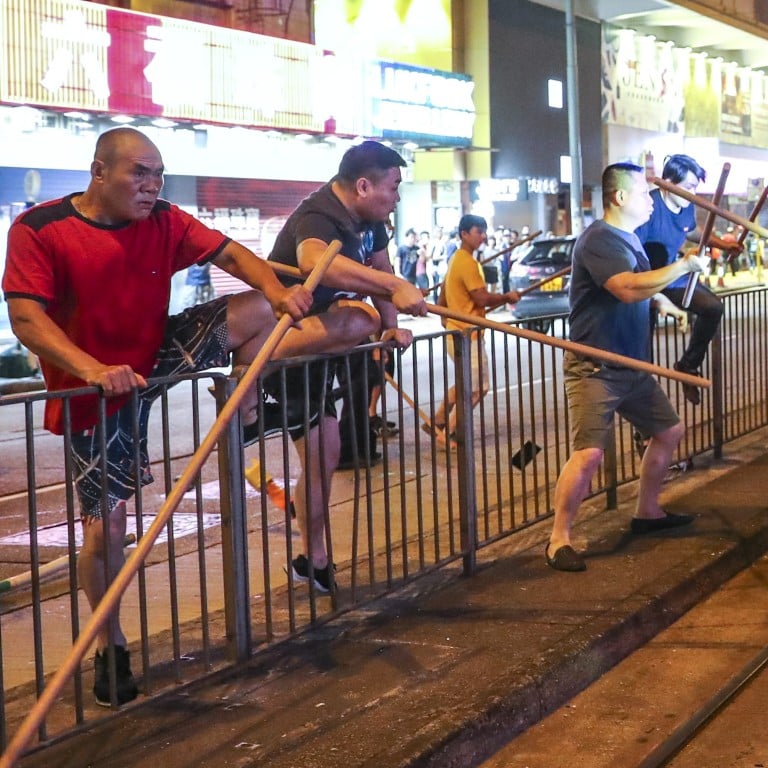
Dangerous resource for hire? Hong Kong’s triads have a long history of political involvement
- The violent attacks in Yuen Long are a reminder that while Hong Kong’s triads are today known to be business savvy, their special place in society makes them uniquely dangerous
For most, triad societies are synonymous with organised crime, the existence of which runs counter to the values of a society premised on the rule of law.
Some academics argue that Hong Kong triads will work for anyone for money and not for political ideology. However, this has not always been the case. While triads today are known to be business-savvy, triad societies have traditionally played a role in politics.
Are Yuen Long attacks a sign of deepening fractures in Hong Kong society that could lead to anarchy?
Rather than being structurally centralised organisations, each triad society is usually a collection of social networks under one banner. As such, members have considerable freedom in conducting their own business activities, and operations are rarely subject to “executive” oversight.
Kuomintang admiral Chan Chak also recruited sympathisers from triad societies to join the war effort. After the war, KMT lieutenant-general Kot Siu-wong founded the prominent triad group 14K as an anti-Communist group, with the “K” representing “Kuomintang”.
With up to 100,000 triad members estimated to operate in Hong Kong, it is questionable whether those involved in highly publicised incidents over the years are representative of the majority who have stayed out of the limelight, particularly given the absence of clearly defined organisational structures characteristic of other organised crime groups.
However, the thugs who carried out the Yuen Long attacks have only served to convince the public that triad societies are a dangerous resource available to those wishing to engage them. Rather than a bona fide expression of political views, the attack against defenceless civilians was a demonstration of cowardice and venality.
Justin Bong-Kwan is a practising barrister and freelance writer

